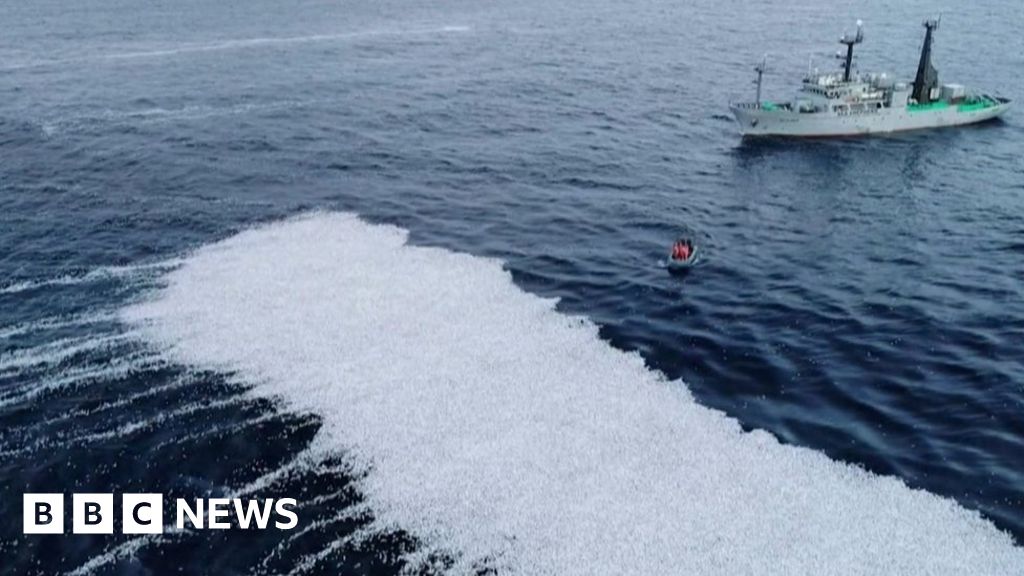I believe you under estimate the effect fishmeal from bait has on the water. Almost every ground bait has it in it plus most boilies are the same, An angler throws in 1kg at least and the majority that the fish eat passes straight through the fishes gut ending up on the lake bed. This is congregated at every swim and and is being put in time and time again, day in day out, year after year. One ounce of it on your garden will make the plants grow much better than if it's not used. Most anglers these days put in more than a kilo in a day, so it has to have a big impact on the growth of water plants. That is my opinion, and you have yours.
You are entitled to your opinion even if it's way off the beam, and it really is in this case.
I have and do fish waters that have never seen a boilie but have hyper weed growth and the characteristic they have in common…. they are all in arable areas!
There are also many trout waters up and down the country that have never seen a maggot, let alone a boilie and again they suffer hyper growth of weed, Gratham, Rutland, Farmoor and many, many more. Reason – land run off of NPK.
What most anglers fail to realise is boilies don’t just sit they on the bottom rotting away. They breakdown and are eaten by the invertebrates that live in the water and bottom sediment. Years ago, when I was fishing one mere I put in the edge in about 6 inches of water several types of bait groundbait, pellet, small 12 mm boilies, sweetcorn just before it went dark. Checking on the baits every two hours with a light to see how they were dissolving. The experiment wasn’t originally to see what ate the bait; it was to see how fast/slow they broke down.
I was shocked to see how many invertebrates were feeding on them. By morning the pellet, groundbait, had gone completely. Boilies were half eaten, sweetcorn had lost some of the internal pulp. I repeated that experiment on every mere I fished (15+) with much the same results. These day they call that Citizen Science experimentation.
When I went to university (Mature Student) to do my degree in Environmental Studies and Ecology, one of my tutors was Mike Dobson a renowned Freshwater/invertebrate scientist who oversaw my final dissertation. In a discussion we had I recounted to Mike the above experiments I’d done, and he was not surprised at all. In fact, he said based on his own work on river invertebrates leaf packs on the River Sett Derbyshire, he’d have expected it.
So based on both experiments his and mine it is very wrong to think boilies just sit there creating pollution and eutrophication. As I said above they add to the base load without doubt, but that addition is minuscule compared to what agricultural fertilisers do through run off.
Turning to the comments on oxygen (O) crashing by bait. Lets just establish the difference between weed and algae. Weed is a plant with a firm central stem. Algae is organism usual single celled. Weed gives off Oxygen during day light hours and Carbon dioxide (Co2) in the dark hours. It grows during the period of the year when light hours are far longer than dark. Therefore, the O levels given off are far greater because of it than the Co2. A weedy water is very unlikely if ever to have an O crash.
On the other hand, Algae robs O from the water and give nothing back other than Co2 as it dies and likely to have an O crash. The life cycle of algae is very short days and a few weeks at most.
Commercial and overstocked water are far more likely to have algal blooms and fish deaths through an O crash because the Biological Oxygen Demands (BOD) are vastly higher than they would be if they were stocked at a natural level. Natural level stocking is between 350lb to 450lbs per acre. Commercials are stocked at 800lb to 1000lbs + per acre. They are devoid of weed due to the type of species stocked, which root, grub out and eat it. They are also mainly devoid of invertebrates as fish stocked at the levels commies have, have eat them because they are constantly hungry.
To recap, weed puts O in the water, whereas algae takes O out of the water, putting in Co2 when it dies.
Highly over stocked waters such as many commercials have a far greater BOD because of the number, type of species stocked and lack of true weed growth.
Finally ground water, ground water comes in several forms deep underground springs bubbling up to the surface, the Water Table that rises and falls dependant on how much or how little is in the aquifers and Through Flow that is water movement through the top 1-2 metres of surface soil. Through Flow is the one that causes the greatest problems of eutrophication as it picks up the fertilizers that have been spread on the land and leached down into the soil.
I hope from the above “proven science” you now have a better understanding of how and why eutrophication, over enrichment call it what you want cases super weed growth and algae blooms. Rather than somebody’s Auntie Ethel anecdotal posting on Facebook or carp fever magazine.

